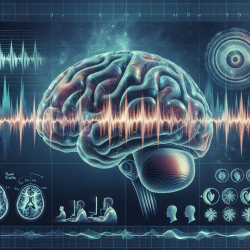The management of Type 1 Diabetes Mellitus (T1DM) presents numerous challenges, particularly when it comes to addressing severe hypoglycaemia (SH). The Hypoglycaemia Awareness Restoration Programme (HARPdoc) offers a novel intervention that aims to tackle cognitive barriers associated with hypoglycaemia awareness. This blog post explores the insights gained from the HARPdoc study and how practitioners can leverage these findings to improve patient care.
Understanding the HARPdoc Study
The HARPdoc study was designed as a randomised controlled trial to evaluate a new intervention aimed at adults with T1DM who experience problematic hypoglycaemia despite optimized self-care. The study compared two group therapies: the novel HARPdoc intervention and the established Blood Glucose Awareness Training (BGAT).
The primary goal was to assess the impact of these interventions on SH rates at 12 and 24 months post-randomisation. Secondary outcomes focused on SH events requiring parenteral therapy, overall diabetes control, and quality of life measures.
Key Findings and Implications for Practitioners
- Cognitive Barriers: The study identified cognitive barriers as significant obstacles in managing hypoglycaemia. Practitioners should consider incorporating cognitive-behavioral strategies to help patients overcome these barriers.
- Psychotherapeutically Enhanced Education: The HARPdoc intervention includes motivational interviewing and cognitive-behavioral techniques. These methods can be integrated into existing educational frameworks to enhance patient engagement and outcomes.
- Structured Group Sessions: Both interventions involved structured group sessions, emphasizing the importance of peer support and shared learning in managing chronic conditions like T1DM.
Encouraging Further Research
The HARPdoc study underscores the need for continued research into innovative approaches for managing T1DM and hypoglycaemia. Practitioners are encouraged to explore further studies that focus on cognitive and motivational aspects of diabetes management. By staying informed about emerging research, healthcare providers can adopt evidence-based practices that improve patient outcomes.
To read the original research paper, please follow this link: Hypoglycaemia Awareness Restoration Programme for People with Type 1 Diabetes and Problematic Hypoglycaemia Persisting Despite Optimised Self-care (HARPdoc): protocol for a group randomised controlled trial of a novel intervention addressing cognitions.










